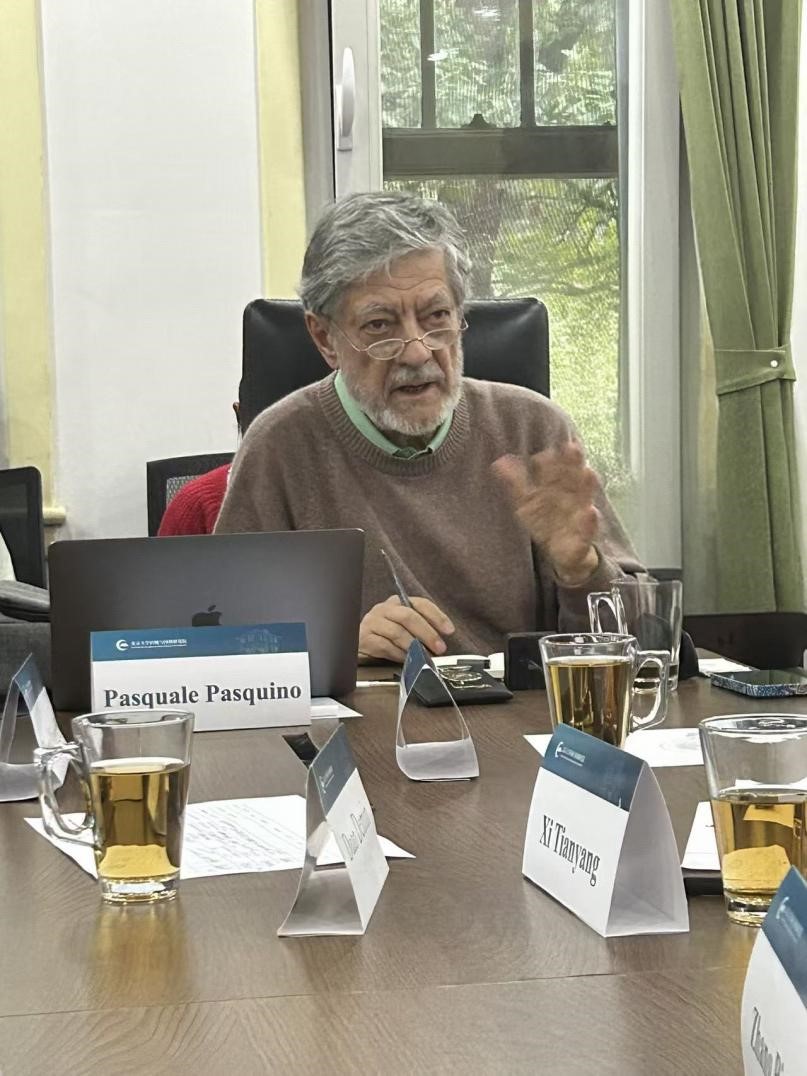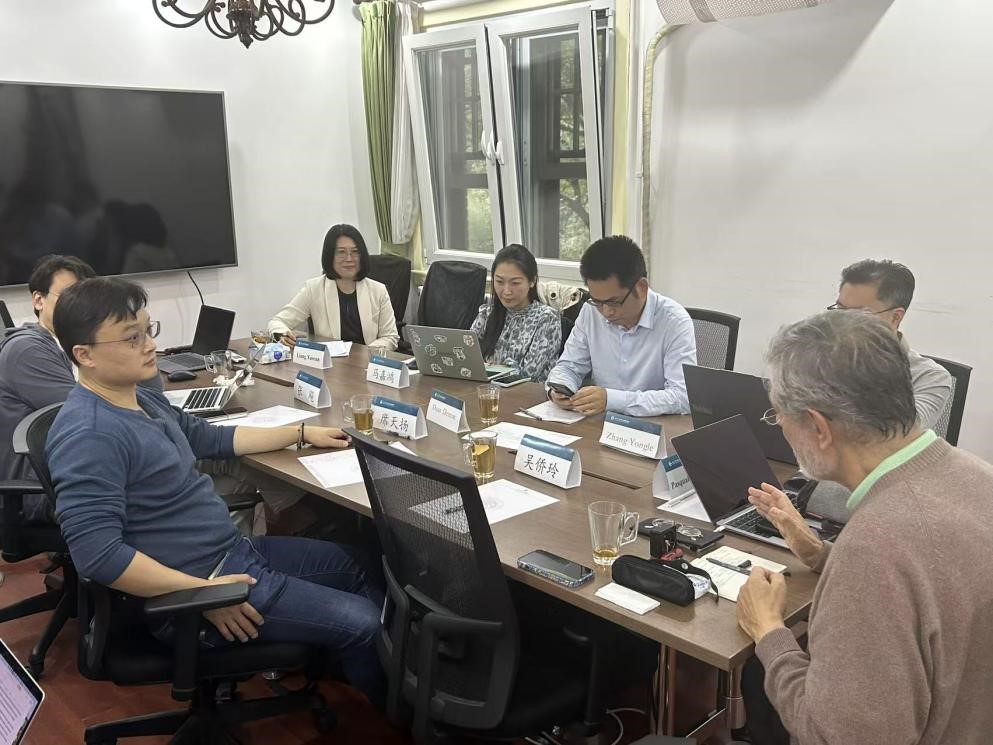
The 62nd session of the “Adventus Amicorum” seminar series, hosted by the Institute of Area Studies, Peking University (PKUIAS), was held on September 22, 2025. The theme of the seminar was “The Transformation of Political Order and Its Impact on European Political Parties.” The seminar featured Prof. Pasquale Pasquino from New York University as the main speaker. It was moderated by Zhang Yongle, tenured associate professor at the Law School of Peking University and deputy director of PKUIAS. The panelists included Xi Tianyang, tenured associate professor at the National School of Development, PKU; Duan Demin, director of the European Studies Center, PKU; Zhang Biao, associate professor at the School of Politics and Public Administration, China University of Political Science and Law; Liang Xuecun, associate professor at the School of International Relations, Renmin University of China; and Ma Jiahong, associate professor at the Institute of World Socialism, School of International Relations, Renmin University of China.
Prof. Pasquino began by outlining the core context for the transformation of the global order, categorizing it into three dimensions: the rise of China, internal conflicts within the European Union (EU), and the decline of the US. China has achieved a significant leap in economic strength, particularly taking a leading position in the new energy sector, and its overall influence on the international community continues to grow. The US, plagued by funding shortages and military ineffectiveness, continues to erode international trust, and its former image as a “defender of the established order” is gradually fading. The EU is deeply mired in structural challenges in political integration, struggling to achieve genuine political coordination. Moreover, frequent disputes among its member states often make it difficult to reach a consensus on key issues, such as sanctions against Russia. Coupled with the external impact of the UK’s Brexit, the EU has been unable to form a unified and efficient force for action, leaving it incapable of effectively responding to various changes in the current global situation.
Prof. Pasquino argued that two major events over the past three years have further exacerbated the chaos in the global order: the Ukraine crisis and the re-election of Donald Trump as US President. He shared his analysis of the origins of the Ukraine crisis and explored the crisis’s impact on EU–Russia relations. Regarding China–US relations, Prof. Pasquino cited Thomas Schelling’s theory that “war will not break out between nuclear-armed countries” and that a military conflict between China and the US is merely an unrealistic fantasy; currently, the competition between the two countries is concentrated in the economic and trade fields.
On China–EU relations, Prof. Pasquino believes that Europe should learn to respect differences and recognize that China’s political system is rooted in its own culture. Europe should acknowledge the reality that “the US ≠ Europe” and strengthen economic cooperation and exchanges with China. He also analyzed some developments within Europe, including the collapse of the French government due to pension reforms and the economic downturn, Germany’s accelerated reconstruction of its military, the UK’s participation in the construction of Europe’s defense system, and the continued vulnerability of border security in the Baltic and Scandinavian countries.

During the discussion session, participating faculty and students engaged in in-depth discussions on the possibilities of China–EU cooperation against the backdrop of a shifting global order, the dilemma of internal European governance, the challenges to the survival of Western democratic systems, the impact of the Russia–Ukraine conflict on the global power structure, the adaptability of different political systems and the boundaries of exchanges, and the coordination of differences between diplomatic rhetoric and policies. Prof. Pasquino addressed each of these concerns one by one and pointed out that the EU currently faces two core challenges. First, there is an irreconcilable contradiction between increasing military spending and maintaining the current level of welfare; second, the party system is declining, and anti-EU political parties in countries such as Germany, France, and the UK are on the rise. The EU must respond effectively to these challenges to sustain its existing integration process.


